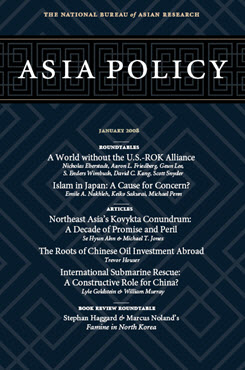The Roots of Chinese Oil Investment Abroad
This article examines the confluence of domestic factors, both economic and political, that shape the behavior of Chinese oil companies abroad and the implications for energy security in China and the rest of the world.
EXECUTIVE SUMMARY
MAIN ARGUMENT
- Enterprise reform, price liberalization, and the introduction of management incentives and competition have greatly fostered the modernization and marketization of China’s petroleum industry. These factors have also blurred the relationship between the oil companies and the government that owns and regulates them.
- Though Beijing actively encouraged overseas investment in the past, the companies are taking the lead today, shaping policy to suit economic interests.
- The international competitiveness of Chinese firms stems less from overt government support than from a higher risk threshold and a willingness to accept lower returns on investment.
- Because little of the oil Chinese companies produce abroad comes home and human and political costs of supporting the firms’ activities overseas are growing, leaders in Beijing are actively debating the merits of China’s “going out” strategy.
POLICY IMPLICATIONS
- The U.S. would benefit more by focusing on the incentives facing individual firms than by focusing on policy pronouncements from Beijing.
- “Equity agreements” signed by Chinese oil companies look largely the same as those signed by international oil companies. These agreements, however, do not impact U.S. energy security regardless of whether the oil is shipped to China or sold on the open market.
- Rather than seeking to prevent Chinese firms from competing in the international oil market, the U.S. may find it more beneficial to encourage the companies’ continued reform so that they more closely resemble the international oil majors.
- The U.S. will find some policymakers in China interested in seeing such reform take place. Yet for China to comfortably depend on the open market, the U.S. will have to demonstrate that it is a reliable partner in ensuring the security of the market for all participants.
About Asia Policy
Asia Policy is a peer-reviewed scholarly journal presenting policy-relevant academic research on the Asia-Pacific that draws clear and concise conclusions useful to today’s policymakers. Asia Policy is published quarterly in January, April, July, and October and accepts submissions on a rolling basis. Learn more


